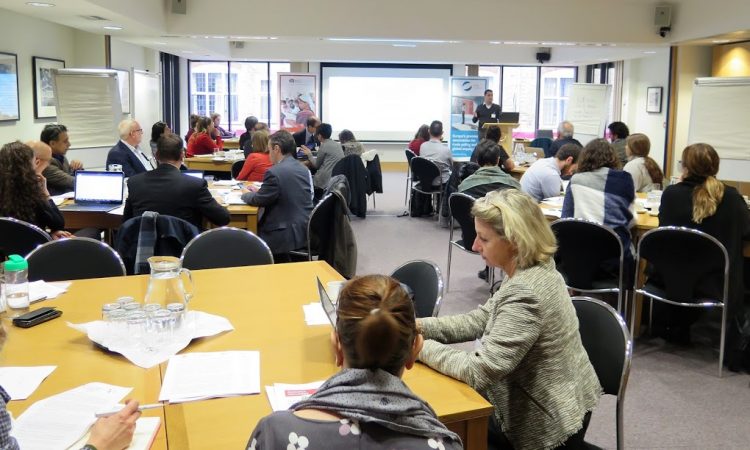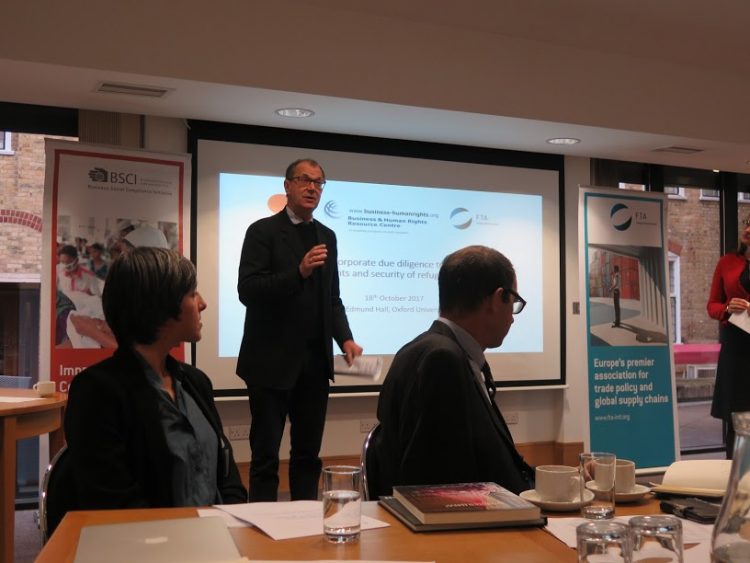Workshop addresses private sector responsibilities towards Syrian refugees
22 Oct 2017

St Edmund Hall hosted a workshop this week organised by the Business & Human Rights Resource Centre, on ‘Business responsibility for Syrian refugees in garment supply chain in Turkey’. The event was held in partnership with the Foreign Trade Association (FTA) and International Trade Union Confederation (ITUC). Participants included senior officials of international garment brands that source from Turkey (Next, M&S, Primark, Esprit, Debenhams, ASOS, etc.), Turkish business associations, Turkish and international NGOs, the UK Foreign Office and academics.
Dr Emre Eren Korkmaz (Newton International Fellow at the Oxford Department of International Development and Junior Research Fellow at St Edmund Hall) helped to facilitate the workshop, which was the second of three events focusing on the responsibilities of business and investor in contexts of large-migration in Jordan, Turkey and Lebanon. Its objective was to discuss the findings of the Business & Human Rights Resource Centre’s third briefing on the progress of garment brands to tackle exploitation of Syrians refugees in their Turkish supply chains through policy and practice. There is a growing interest in the legal employment of refugees in Turkey and brands, manufacturers, trade unions and NGOs have joined in collective actions to facilitate the integration of Syrian refugees in the formal labour market.

We are at a critical point in time to ensure a responsible reaction from the private sector to one of the world’s major humanitarian crises. There are 5 million registered Syrian refugees in Jordan, Lebanon and Turkey. One in every 30 people in Turkey is a Syrian refugees; in Jordan one in ten; and in Lebanon, one in four. Many seek work in the informal labour market to survive, where they are vulnerable to exploitation and labour abuse, including dangerous working conditions, physical and sexual abuse, and excessive hours for minimal pay.
Recent host government and donor initiatives have illustrated the growing awareness of the role business can play in helping to respond to the crisis, including by providing livelihoods for refugees. There are, however, some major challenges including the fact that countries with high numbers of refugees tend to have high existing levels of unemployment, as well as large migrant worker populations.
Participants at the workshop were able to exchange views on the opportunities and challenges they face, and were invited to discuss and develop recommendations for a sensitive and comprehensive approach to improve decent and fair work in Turkish garment supply chains.
Categories
Related News

Teddy Hall’s Professor Carly Howett’s Research Suggests Saturn’s Icy Moon May Host Life
10 Nov 2025
